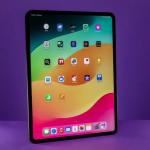The announcement came as the state recorded six new locally acquired Covid cases, all linked to the 17-year-old who tested positive to the virus on Friday. The new cases are the family members, and a person who tutors the girl. They are all confirmed to have the Delta strain.There had been mounting speculation ahead of the announcement on Saturday morning, exacerbated by Premier Annastacia Palaszczuk, who remains in hotel quarantine, urging Queenslanders to tune in for the “very important press conference” by Deputy Premier Steven Miles, Health Minister Yvette D’Ath and chief health officer Jeannette Young. The Indooroopilly State High School student had been infectious and out in the community since July 27. The school has shut for two weeks as a result, and hundreds of close contacts have been marched into quarantine.SYDNEY PROTEST WARNINGAs NSW’s Covid crisis continues, Sydney residents considering attending anti-lockdown protests have been told that doing so would land them “right in the hands of police”. At least three anti-lockdown groups took to message sharing platform Telegram to warn protesters that no official events were planned for Saturday, and strongly advised against anyone attending any meeting.“We strongly advise against attending any protest events that claim to be operating,” the group said. “Any planned event lacks an established ground team, and has been given insufficient promotional time and effort. It came as the state is bracing itself for the latest number of Covid infections, to be announced around 11am on Saturday. And Victoria recorded two new locally acquired cases on Saturday. Both are linked to existing clusters, however one case was not in quarantine for their infectious period. PM SETS VACCINE TARGET Prime Minister Scott Morrison revealed new vaccine targets Australia’s states and territories must meet to get out of lockdowns and re-open international travel.Mr Morrison confirmed 12 million doses of Covid-19 vaccines have been given and detailed a new four-step road map out of the pandemic.One in four people over 50 are fully vaccinated and 40 per cent of those over 70. Of those over 70, 80 per cent have had the first dose.Mr Morrison said the plan was based on vaccination targets that each state and territory have to reach, on recommendations from the Doherty Institute. The states have agreed that “no state … is required to increase restrictions beyond where they are right now,” the PM aid. Australia is still under phase 1 – suppression – of the four phase road map he announced last month.Australia will stay at that stage until we hit a vaccination target of 70 per cent.Mr Morrison said states can only move to the next stage of Phase B if the whole country reaches that average on a national level, and then that state itself also reaches 70 per cent.“I believe we can get there by the end of the year to 70 per cent,” Mr Morrison said on Friday. “The UK has got there. Israel has got there.“It’s done as a team effort. We are seeing our Olympians show that team spirit over there in Tokyo, and we will hit these targets with what I believe will be a gold medal run to the end of the year.”“All of Australia has to get there together on average.”The target needed for the next stage, Phase C, is 80 per cent – at this point, lockdowns in Phase B are less likely.Mr Morrison said once Australia reaches Phase B, vaccinated people will face fewer restrictions. “The details of that are still to be worked through,” he said. “We’ve established a small working group involving the Northern Territory, Victoria and Tasmania, and they will lead the work on that process.“So if you get vaccinated, there will be special rules that apply to you. Why? Because if you’re vaccinated, you present less of a public health risk. You are less likely to get the virus. You are less likely to transmit it,” Mr Morrison said.There will also be a higher arrival cap for vaccinated travellers. After reaching Phase C, he said Australia will lift all restrictions on outbound travel for vaccinated Australians and extend the travel bubble for unrestricted travel to new candidate countries.“There will be a gradual reopening of inward and outbound international travel with safe countries, safe countries, those that are have the same sort of vaccination levels that Australia has and proportionate quarantine and reduced requirements for fully vaccinated inbound travellers,” he said.The final phase does not have a vaccination target set at this point. One was not recommended by the Doherty Institute.“The final phase involves opening international borders, quarantine for high-risk inbound travel only … living with Covid,” he said.“Because once we get above the 80 per cent, the scientific evidence shows that we’re largely then in a place where Covid can be managed consistent with other infectious diseases and of course, we don’t apply those types of restrictions to the flu or many other things like that.”He also declined to say how long it will take to reach 70 per cent vaccination when asked if it will be by the end of the year.“We’re not going to set timetables on it. I would hope so, but that is entirely up to how the nation responds to this challenge,” he said.Mr Morrison said the government was also making great progress on digital vaccine certificates. “It already exists for those who are getting vaccinated now but to be able to, in the next phase, and we are only days away from this, for it to be dropped into an Apple wallet or wallet,” he said. NSW WARNS PROTESTERS AS 170 CASES EMERGEIt comes as NSW Premier Gladys Berejiklian has said the Covid-19-plagued state has had 170 new cases as the Delta strain continues to spread. Ms Berejiklian said there were 42 infectious in the community, with 95,000 people tested in the last 24 hours until 8pm Thursday night. NSW Police Commissioner Mick Fuller also warned anti-lockdown protesters to not come to the city, where 1000 officers will be ready to meet them.“Please don’t come into Sydney tomorrow to protest,” he said. “If you do, you will be met by up to 1000 police who will be ready to deal with you, whether that be via the health orders or other laws. “We know that this is such an important time for New South Wales in terms of winning the battle against the virus and coming into town to protest is not the answer.”Ms Berejiklian emphasised people should not do anything illegal and said the numbers will continue to “bounce around”, and stressed people should not mix with other households and to get vaccinated. She also said another vaccination hub at Qudos Arena at Homebush in Sydney’s west will open from August 9 to vaccinate 20,000 Year 12 school students in the 8 hotspot LGAs over five days. Of the new cases, 65 were in isolation throughout their infectious period and 10 cases were in isolation for part of their infectious period.The new figures come as Sydneysiders wake to tougher restrictions, including mandatory masks outdoors in eight local government areas.A 5km travel limit is also in place for those LGAs.The southwest and western Sydney remain an area of concern. Of the 170 new cases overnight, 87 were from the southwest and 32 were from western Sydney.“Do not give those you love the most a death sentence,” she said.“This Delta strain is contagious, it’s deadly and it’s affecting people of all ages but we also know New South Wales that alongside these restrictions, our biggest weapon against the virus is vaccination. “Can I please encourage everybody to come forward and get vaccinated. New South Wales has already administered just over 3.6 million jabs.”Targeted lockdowns will continue in Australia well into 2022, according to advice Treasury is handing to the national cabinet.Scenarios and modelling prepared by the Doherty Institute reveal the necessary vaccination rates needed to allow Australia to open up, and the economic costs of the different scenarios, The Australian reports.It’s believed the advice contains assumptions lockdowns and other restrictions will continue past the end of this year.State and territory leaders will be given the data at national cabinet on Friday afternoon. It comes just days after Prime Minister Scott Morrison assured Australians the country would look much different by Christmas, when the vaccine rollout is estimated to be completed.NSW Covid Exposure SitesNED-3760-NSW’s new Covid restrictionsPM WARNS UNVACCINATED FACE LESS FREEDOMS Aussies who choose not to get a Covid-19 vaccine cannot expect to have the same level of freedom as those protected, Scott Morrison says. National cabinet will discuss modelling that will determine the country’s next phase on the path to reopening. The Prime Minister said vaccinated people were less likely to transmit Covid-19, get a serious illness and die from the virus. “We would have to have more restrictions on people are unvaccinated because they’re a danger to themselves and others,” Mr Morrison told 3AW.“These are the things we are still working through now because we are not at that point where we have a high enough vaccination rates across the country that enables those choices to be made.” Mr Morrison said vaccination rates had to hit certain thresholds – being discussed by leaders – before Australia could enter the next phase.He expects everyone who wants a vaccine will have access to “two shots” by the end of the year.“Almost 40 per cent of Australians have now had their first dose,” Mr Morrison said. “You can get your AstraZeneca second dose between four to 12 weeks and your Pfizer in three weeks.”TASSIES UNDER 40 CAN GET PFIZER JABSAll Tasmanians aged 30-39 will be eligible to book a Pfizer vaccine as early as next week, Premier Peter Gutwein has announced.“From Monday, vaccination centres will start to take all eligible people over the age of 16 and all eligible people over the age of 30 will be able to book a vaccination and there are spots available in August,” Mr Gutwein said.Health Secretary Kathrine Morgan-Wicks said Tasmania’s vaccination program was “gathering pace”.“In our older age groups more than 83% of people aged 70 years and over have received a first dose and more than 45% have been fully vaccinated,” she said.“Community pharmacies will also be shortly joining in and with an increase of Pfizer available to both the state and our GPs we are gathering pace.“This is absolutely the right time to introduce our 63,000 30-39-year-olds to our vaccination rollout.”Ms Morgan-Wicks said they had 11,000 extra appointments had just been added in the last hour. STATE OF PLAY IN VICTORIAVictoria has recorded two new locally acquired Covid-19 cases on Friday.The state’s health department announced three new local infections about 8.30am, but one case was previously revealed on Thursday.That case was detected in Gippsland on Thursday, but chief health officer Brett Sutton said they had been in quarantine during their entire infectious period.The health department also confirmed all of the new local cases were linked to existing outbreaks and all were in isolation for 100 per cent of their infectious period.It comes as health authorities confirmed a recent mystery case – a traffic controller at the Moonee Valley racecourse testing site – had also been linked to Victoria’s outbreak.But chief health officer Brett Sutton said authorities were still scrambling to confirm how the man contracted the virus.“Further work is underway to determine how the positive case acquired the virus,” he said in a statement.Victoria has recorded 208 cases linked to the two outbreaks that jumped the border from Sydney’s deadly Delta cluster – one from a team of Sydney removalists who transited through the state and the other from a family who returned to Melbourne’s north from a NSW red zone.No new cases were recorded in hotel quarantine, with the number of active cases in Victoria at 200 – down from 205 on Thursday.NED-3869-Covid-19-Exposure-Sites-VictoriaQLD CASE HAS EXPERTS WORRIEDQueensland health authorities are frantically trying to work out how a high school student contracted Covid-19.The state’s latest community acquired case is a 17-year-old girl, who became ill on Thursday and returned a positive result later that night.Chief health officer Jeannette Young said it was a concerning development.“I’m struggling to see how she acquired it,” Dr Young said.“We do know that we have had 13 incursions of the virus into Queensland over the last six weeks.“We know that in any particular outbreak, someone can get infected, not have symptoms and then spread the virus to someone else, which is why it’s critically important that we all remain very cautious until the vast majority of people have been able to be vaccinated.”It’s believed the Indooroopilly State High School student had been infectious and out in the community since July 27.She had been at school for two of those days.Queensland Health notified the campus about midnight on Thursday.A late-night email was sent shortly after to parents, notifying them the school would be closed for 48 hours so deep cleaning could take place and contact tracers could get on top of the spread.Health Minister Yvette D’Ath said it was not believed the family, from the Brisbane suburb of Taringa, had been overseas.“Because this is an unknown, unlinked case at this stage, until we get more information, masks are more important than ever,” she said.The results of genomic sequencing are expected on Friday afternoon.At this stage, it is not known what strain of the virus the student has or whether it is linked to any other outbreaks.Brisbane residents are being urged to monitor the Queensland Health website as exposure sites are added throughout the day.The latest case comes a day after authorities extended mask wearing in 11 local government areas, including Brisbane, for another seven days.NED-3869-Covid-19-Exposure-Sites-QldNEW VACCINE SAFETY STUDYThe AstraZeneca vaccine is no more threatening than the Pfizer alternative and patients are more likely to get blood clots from Covid-19 than the jab, a new study has found.In an article published in The Lancet this week, scientists said the Oxford-made vaccine had a “similar safety profile” to the Pfizer vaccine.The study showed patients developed blood clotting conditions after receiving the AstraZeneca Covid-19 vaccine at a “similar” rate to those who had the Pfizer shot.A team of researchers from the UK, Spain and the Netherlands correlated data from over 1.3 million people vaccinated against Covid in Spain, looking for evidence of blood-clotting conditions that developed after they had their vaccinations, according to a report in Euro News.“In this study including 1,372,213 people vaccinated against SARS-CoV-2, similar safety profiles were seen for both vaccines,” the researchers wrote in their paper, due to be published in the Lancet medical journal.The study authors reportedly found that people who contracted coronavirus developed blood clots at a much higher rate than those who had received either the AstraZeneca or Pfizer vaccines.The not yet peer-reviewed findings come after a difficult period for the AstraZeneca vaccine. In April, the European Medicines Agency (EMA) said there was a “possible link” between the vaccine and “very rare cases of unusual blood clots with low blood platelets”. Following the discovery, many countries around the world set restrictions on its use.NED-3619-AstraZeneca blood clots-What we knowAUSTRALIA RECORDS MORE CLOT CASES LINKED TO JABIt comes as Australia recorded six more cases of rare blood clots “likely linked” to the AstraZeneca vaccine.In it’s weekly safety report, the Therapeutic Goods Administration said one case was “confirmed” in a 74-year-old woman from Victoria.The other cases, deemed “probable”, were two 61-year-old women from NSW, a 71-year-old man from NSW, a 72-year-old man from Queensland and a 77-year-old man from Victoria.The latest cases bring the total cases of blood clots in Australia to 90 (54 confirmed, 36 probable) from about 6.3 million doses of the AstraZeneca vaccine administered to date.In Australia, severe cases of blood clots appear to be more common in women in younger age groups. Nearly half of the cases in women required treatment in intensive care.Four of the five deaths from blood clots linked to AstraZeneca occurred in women aged 48 (two cases), 52 and 72 years old. The other death was in a 44-year-old man. Early detection of blood clots may help to prevent more serious complications from developing.The TGA warns people should seek medical attention if they develop any of the following symptoms after vaccination:– severe or persistent headache, blurred vision, confusion or seizures;– shortness of breath, chest pain, leg swelling or persistent abdominal pain;– unusual skin bruising and/or pinpoint round spots beyond the site of vaccination.The most common time period for onset of blood clot symptoms is four to 30 days after vaccination.
Powered by WPeMatico






